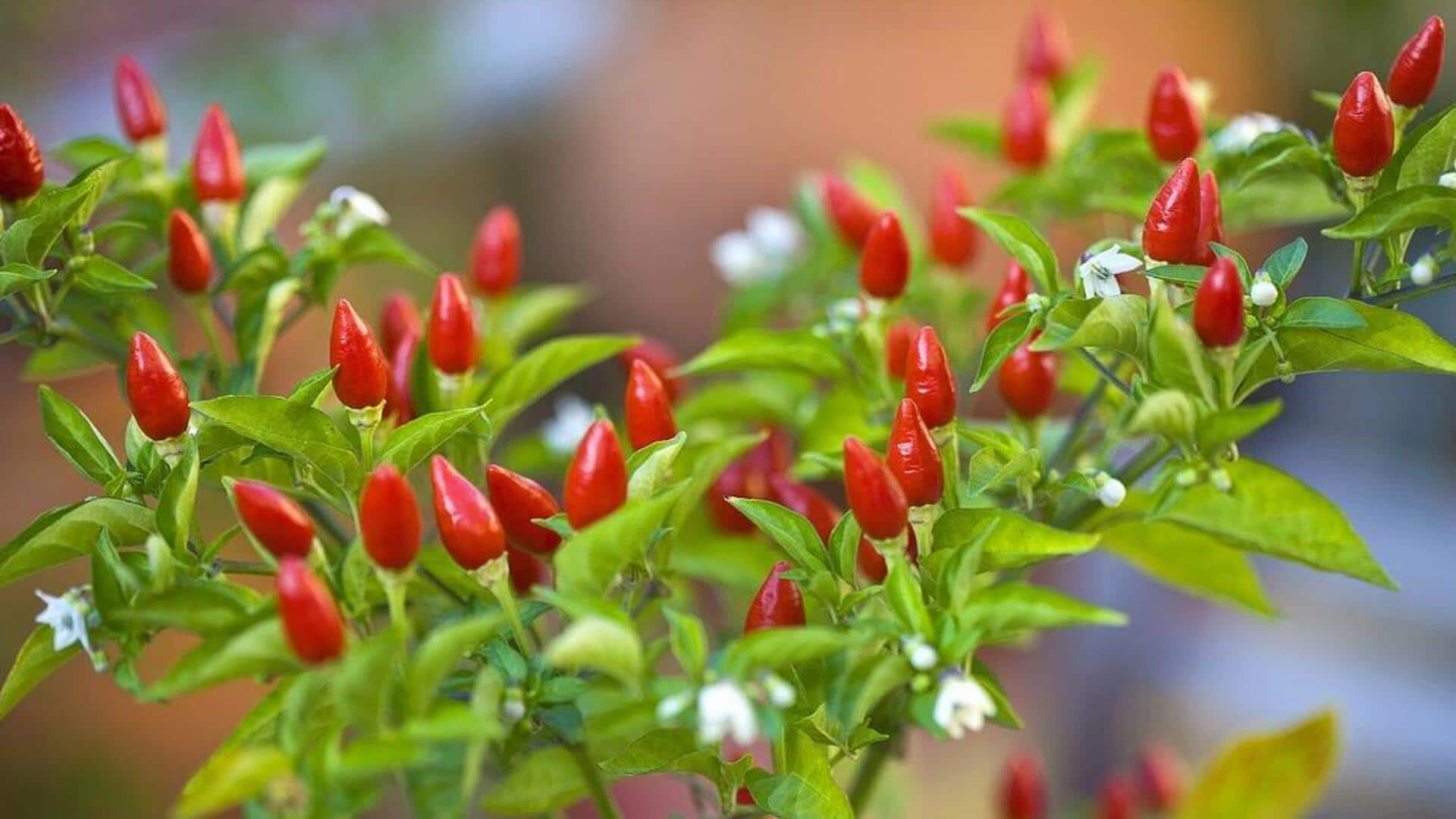
Essential spices for classic Portuguese piri-piri
What's the story
Portuguese cuisine is renowned for its flavorful dishes and aromatic spices, with piri-piri serving as a culinary cornerstone. This spicy sauce, characterized by its fiery heat and tangy undertones, owes its distinctive flavor to a careful selection of spices. Understanding the key spices for an authentic piri-piri experience can elevate your culinary creations, allowing you to bring a taste of Portugal to your kitchen.
Chili
The heart of piri-piri: African bird's eye chili
The African Bird's Eye Chili is the key to making traditional piri-piri sauce, providing its signature heat. Whether fresh or dried, the chilies are usually crushed or turned into a paste. Although the level of spiciness can be tailored to individual tastes, it's this particular chili that gives piri-piri its unique flavor, making it an essential ingredient for authenticity.
Garlic
Aromatic depth with garlic
Garlic is a key ingredient that imparts depth and aroma to the piri-piri sauce. Typically, two to three cloves are utilized in traditional recipes, either minced or crushed for maximum flavor release. Garlic not only balances the heat from the chilies with its robust flavor but also contributes a subtle sweetness upon cooking. This enhances the overall harmony of the sauce's taste.
Lemon
The citrus twist: Lemon juice
Lemon juice is key for adding a bright and refreshing citrus element to counterbalance the heat of the chilies. It rounds out the flavors while contributing a subtle tanginess that enhances the overall taste of the sauce. Opt for freshly squeezed lemon juice instead of bottled alternatives to guarantee a zesty burst of flavor that pairs beautifully with the chilies and garlic.
Herbs
Herbal notes with oregano and basil
Oregano and basil infuse an herbal layer into piri-piri sauce, enhancing its depth without dominating other flavors. Dried oregano imparts a subtle earthiness while basil introduces a sweet yet peppery note that complements the spicy foundation. Although these herbs are typically used judiciously to avoid overpowering the main ingredients, they are essential for creating a balanced and authentic flavor profile.
Olive oil
Olive oil: Binding it all together
Extra virgin olive oil isn't just a cooking medium here; it's a crucial emulsifier that brings all those ingredients together into a unified, velvety sauce, adding its own layer of richness and flavor. The quality of your olive oil will make a noticeable difference in the final result. Higher-grade oils will contribute more complex flavors that complement, rather than overpower.